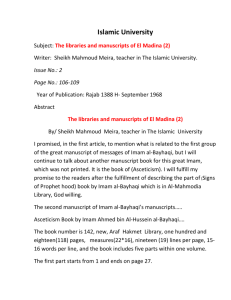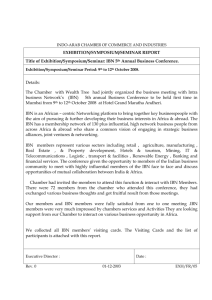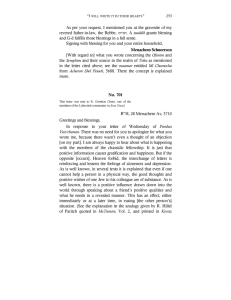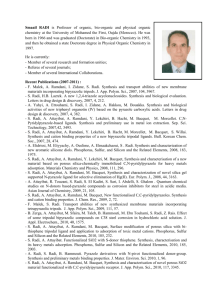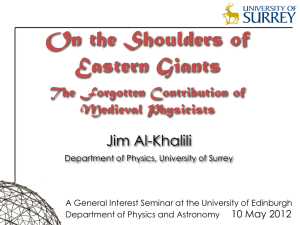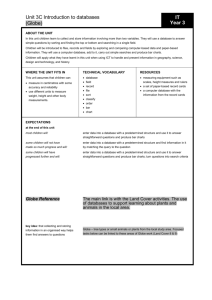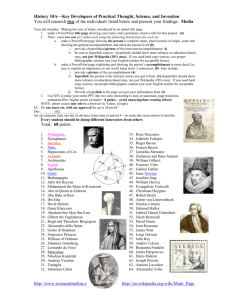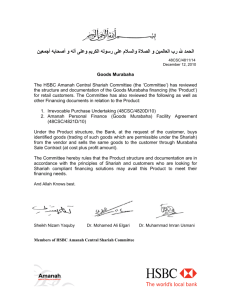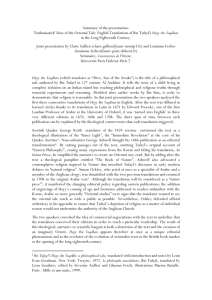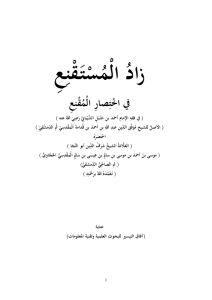AnswerofFatwaAl
advertisement
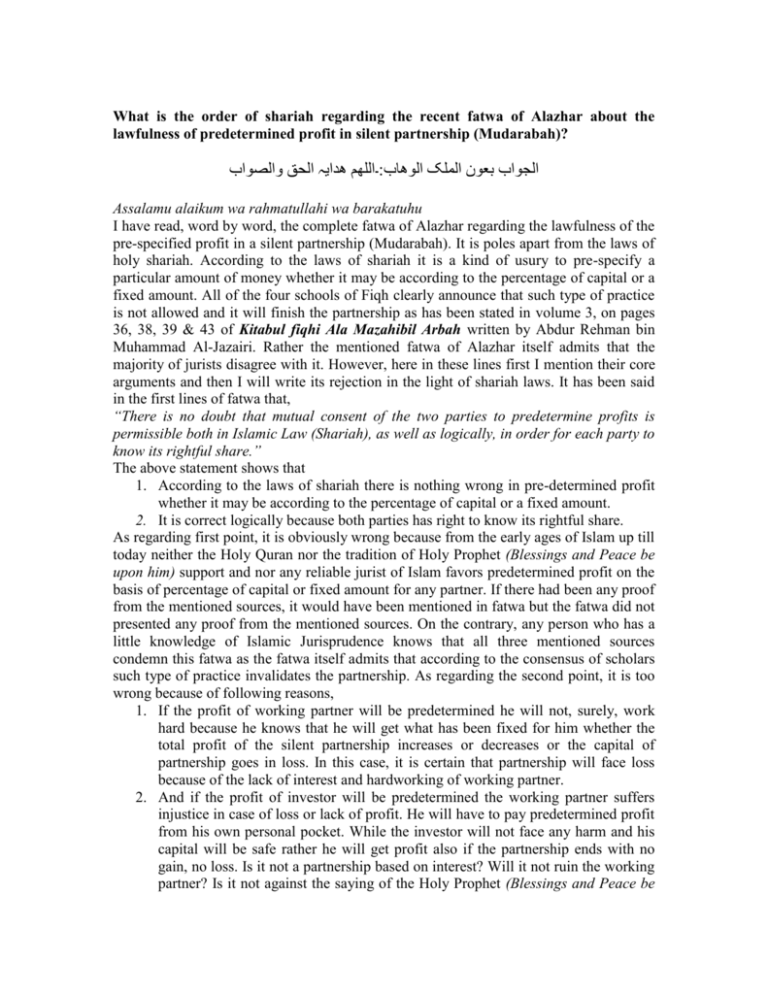
What is the order of shariah regarding the recent fatwa of Alazhar about the lawfulness of predetermined profit in silent partnership (Mudarabah)? ۔اللھم ھدایہ الحق والصواب:الجواب بعون الملک الوھاب Assalamu alaikum wa rahmatullahi wa barakatuhu I have read, word by word, the complete fatwa of Alazhar regarding the lawfulness of the pre-specified profit in a silent partnership (Mudarabah). It is poles apart from the laws of holy shariah. According to the laws of shariah it is a kind of usury to pre-specify a particular amount of money whether it may be according to the percentage of capital or a fixed amount. All of the four schools of Fiqh clearly announce that such type of practice is not allowed and it will finish the partnership as has been stated in volume 3, on pages 36, 38, 39 & 43 of Kitabul fiqhi Ala Mazahibil Arbah written by Abdur Rehman bin Muhammad Al-Jazairi. Rather the mentioned fatwa of Alazhar itself admits that the majority of jurists disagree with it. However, here in these lines first I mention their core arguments and then I will write its rejection in the light of shariah laws. It has been said in the first lines of fatwa that, “There is no doubt that mutual consent of the two parties to predetermine profits is permissible both in Islamic Law (Shariah), as well as logically, in order for each party to know its rightful share.” The above statement shows that 1. According to the laws of shariah there is nothing wrong in pre-determined profit whether it may be according to the percentage of capital or a fixed amount. 2. It is correct logically because both parties has right to know its rightful share. As regarding first point, it is obviously wrong because from the early ages of Islam up till today neither the Holy Quran nor the tradition of Holy Prophet (Blessings and Peace be upon him) support and nor any reliable jurist of Islam favors predetermined profit on the basis of percentage of capital or fixed amount for any partner. If there had been any proof from the mentioned sources, it would have been mentioned in fatwa but the fatwa did not presented any proof from the mentioned sources. On the contrary, any person who has a little knowledge of Islamic Jurisprudence knows that all three mentioned sources condemn this fatwa as the fatwa itself admits that according to the consensus of scholars such type of practice invalidates the partnership. As regarding the second point, it is too wrong because of following reasons, 1. If the profit of working partner will be predetermined he will not, surely, work hard because he knows that he will get what has been fixed for him whether the total profit of the silent partnership increases or decreases or the capital of partnership goes in loss. In this case, it is certain that partnership will face loss because of the lack of interest and hardworking of working partner. 2. And if the profit of investor will be predetermined the working partner suffers injustice in case of loss or lack of profit. He will have to pay predetermined profit from his own personal pocket. While the investor will not face any harm and his capital will be safe rather he will get profit also if the partnership ends with no gain, no loss. Is it not a partnership based on interest? Will it not ruin the working partner? Is it not against the saying of the Holy Prophet (Blessings and Peace be upon him) that “No harm is allowed ?”ال ضرروال ضرارDr. Tantawi writes its answer in these words, ”The answer is that banks may lose in one investment, but make profits on many others, thus covering the losses”. From this answer some other questions rise. First, what is about a poor skilled trader who is working for an investor in a partnership and has no other source of income and faces loss in partnership? Second, the silent partnership is a particular kind of partnership in which one partner invests capital and other partner presents his work. When both of the partners share equally meaning capital from the investor and work from the entrepreneur then in case of loss or no gain, at the end of partnership why will a entrepreneur be compelled to give pre-specified profit to the investor? Is he given profit only because of capital then why is an entrepreneur not given any profit because of his work? 3. And if both of the partners demand to know their rightful share in the beginning of the partnership as the fatwa declares that it is right of both parties to know their rightful share then how what is its possible way to inform both of them their predetermined profit? According to the fatwa of Alazhar if the profit of investor is mentioned in beginning then what is the criteria of predetermining profit for the entrepreneur? For example if Mr. A invests 100000 rupees as a capital and 15% of the capital pre-specified profit is fixed for investor. Mr. B is a working partner he also demands to predetermine his profit. If his profit is also determined according to the percentage of capital for instance 85%. If the partnership ends with the profit of fifty thousands, the investor will get 15% of capital i.e. 15000 rupees now how is it possible to pay 85000 to the entrepreneur? Will this amount be paid from capital only or from profit only or from both profit and capital? It is impossible to be paid from profit only because no mathematician of the world can bring 85000 out of remaining profit 35000. If it is paid from capital only or from capital and profit it will be obvious injustice with investor. If it is said that the predetermined profit of entrepreneur should not be kept so high rather it should 5% i.e. 5000 or 10% i.e. 10000. I ask then who will take the remaining amount of profit i.e. 30000 or 25000. According to the discussed fatwa, it will be given to the entrepreneur or bank. The question rises that why is not giving to the investor? No doubt, it is a specification without any specifier. If it is said that the profit of entrepreneur can not be determined. I, then humbly, ask what is your kind opinion about the fatwa which proclaims, ” banks pre-determine those profits or returns for their customers only after careful and detailed study of global and domestic market and economic conditions, the specific circumstances of each dealing, its type, and its average anticipated profitability.” In the same way when the profit of both parties is determined and partnership faces loss or ends at a minor profit then according to the fatwa entrepreneur will pay the predetermined profit to the investor anyhow but who will pay the predetermined profit of entrepreneur. Is it not a kind of practice which supports the capitalism or interest? The above discussion shows that predetermined profit for any of the partner is not allowed. The laws of shariah and the logic based on justice condemn it rather it is a kind of interest. When the great Jurist of Islam, Imam Ahmad Raza Khan rahmatullahi alaihi was asked whether it is a kind of usury or not if a person who collect the money of people with the condition that he will invest their money in business and take the one fourth of profit as his wages and the remaining money will give to the investors. If this person sets a contract that he will pay 12% of capital as a profit whether the business faces loss and in case of gain he will give 12% as well as the excess. Imam Ahmad ‘Raza Khan Rahmatullahi alaihi replied, “This contract is forbidden. Although the profit does not decrease from the mentioned percentage yet all of them are sinners and it is forbidden to pay any amount which he will give to the investors in case of loss. And it is forbidden for investors to take the amount which he will pay from his personal pocket or from any other source in case of lack of profit.” (Fatawa-e-Razwiyah Vol. 8 Page. 16) Having written the references of the mentioned reply from Radaul Muhtar and Alamghiri, he further writes with the reference of Al-Hidaya that predetermining profit is a pure interest. He writes, “A conditioned excess without a compensation for any party in a contract of exchange, is usury.” (Ibid) Now I proceed to the next shortcoming of fatwa. The fatwa states that, “Pre-specification of profits for those who invest their funds with banks or other financial institutions through investment agency is permissible without any suspicion. This type of transaction is judged based on its benefit, and does not belong to the areas of creed and acts of worship, wherein change is not permissible. Consequently, investing funds with banks that pre-specify profits or returns is permissible, and there is no harm therein,” According to these lines this fatwa does not opposes any unchangeable teachings of Islam but I say this statement is not correct. As I have mentioned in the above lines that the predetermining of profit for any of the parties depends upon injustice and cruelty and according to the teachings of the Holy Quran and the prophetic traditions injustice and cruelty is not allowed in any case so how can be accepted mere proclamation of the fatwa? Now I proceed to the next shortcoming of the fatwa. The fatwa states that, “The partnership itself is a hiring contract for an unknown compensation, thus full of Gharar. However, a consensus ruling is in effect allowing this contract (with profit-sharing), despite that Gharar (as stated by ’ibn Qudāmah). Hence, such partnerships belong to a class of contracts in which the Gharar [including that induced by pre-specification of profits] is ignored, provided that it does not lead to legal disputation.” This is the main argument of making predetermined profit lawful. According to these lines as the silent partnership already includes uncertainty and in spite of this uncertainty (Gharar) shariah allows it, so there is nothing wrong if we create uncertainty (Gharar) by predetermined profit analogizing it upon the uncertainty allowed by shariah. I say, it is a wrong analogy (Qiyas). Because to the great Imam Abu Hanifa rahmatullahi alaihi and other reliable jurists silent partnership is contrary to analogy as has been mentioned in Hilyatul Ulama (Vol. 5 page. 326). And according to the rules of analogy ( )سايقلاthe antecedent ( )هيلع سيقمmust be according to the rules of analogy ( )سايقotherwise nothing can be analogized upon it as writes Ash-Sheikh Al-Imam Hafizud Deen AnNasafi rahmatullahi alaihi (يتمف سايقلاب مكحلا تابثا يلا انتجاح نال)سايقلا نعالودعم نوكيال نأو ث بت ح كم ال نص ع لي وجه ي رده ال ق ياس ال شرعي ل م ي جزاث بات ه ف ي ال فرع ب ال ق ياس. ( هحفص يناثلادلجلا رانملا يلعرارسالا فشك129 )يشتارك زرشلبب فدصلا هعبط Translation: (The one of the basic condition of analogy is that the precedent must not be contrary to analogy) because we are in need of proving order through analogy so when the religious order ( ) ننis proved in a form that religious analogy rejects it so it is not lawful to prove it in another branch by analogy. However, the holy shariah permits some types of uncertainty ( )ررغbut it is only allowed when it is minor uncertainty ( )ريقحررغand there is no way to fulfil necessity without facing labour as says Ash-sheikh Al-Imam Sharfud Deen An-Nuwavi rahmatullahi alaihi. He writes, غررح ق ير جمع ال م س لمون ع لي جوازا ش ياء ف يها ) 2 ) ط ب عه ق دي مي ك تب خان ه ك رات شيال صح يح ل م س لم ال ج لدال ثان ي ال ص فحة Translation: Muslims have gathered on the lawfulness of those things which have minor uncertainty. The minor uncertainty means that uncertainty which does not oppose the laws of shariah and there is no way to fulfil basic needs of people without bearing it e.g. It must not take to the dispute between two parties and must not cause any type of injustice and cruelty with either of the parties. For example the sale of foetus, bird in the air and milk is udder is not allowed. Sheik-ul-Islam Imam Burhanud Deen Al-Marghinani rahmatullahi alaihi says, ”The sale of fish which the vender may have caught, and afterwards thrown into a fountain from which it can not be taken without difficulty, is null because there the delivery is impracticable.” He rahmatullahi alaihi further writes, (Al-Hidaya Vol.2 Page. 51 Printed by: Maktaba-e-Shirkate Ilmiyah Multan) Translation”The sale of a bird in the air or of one which after having been caught is again sat at liberty is null because in the one case it is not property and in the other delivery is rendered in impracticable. The sale of foetus in the womb or of the offspring of the foetus is null because the Holy Prophet (Blessings and Peace be upon him) has prohibited it and also because there is a probability of fraud. The sale of milk in the udder is null because there is a possibility of fraud, in the udders being perhaps void of milk, and full wind, or because there might be arise a contention with respect to the mode of extracting the milk, or because might happen that the udder containing more milk at the time of extracting it than at the time of sale, and hence there might be implicated in the sale something not properly the subject of it.” The mentioned above sales have been forbidden only because of uncertainty might not cause dispute and injustice although someone can say in the matter of fish that vendors are very skilled in catching fish because fish can not run away from the fountain so there is no uncertainty or it is a minor uncertainty likewise the same thing can be said in case of bird in the air, milk in udder and foetus but the Holy Prophet (Blessings and Peace be upon him) made the sale of foetus unlawful due to uncertainty. No doubt, it looks a minor uncertainty but there is a chance that it can become the cause of injustice and dispute. In the matter of selling fish in a pond from which it can not caught without tricks if the seller could not caught and delivered it to the buyer, the buyer will demand for fish or return of his money. Consequently there is a big chance of fight or if he could not get his money he will suffer injustice. Likewise the matter of milk in udder, bird in the air and foetus in the womb if the buyer could not get the thing which he bought he will have to suffer injustice. And injustice and cruelty is not allowed with a Muslim in any case. The Holy Prophet (Blessings and Peace be upon him) said, “Verily your blood, your properties are as sacred and inviolable as the sacredness of this day of yours, in this month of yours, in this town of yours, Behold! Everything pertaining to the Days of Ignorance is under my feet completely abolished. Abolished are also the blood-revenges of the Days of Ignorance. The first claim of ours on blood-revenge which I abolish is that of the son of Rabi'ah ibn al-Harith, who was nursed among the tribe of Sa'd and killed by Hudhayl. And the usury of she pre-Islamic period is abolished, and the first of our usury I abolished is that of Abbas ibn AbdulMuttalib, for it is all abolished. Fear Allah concerning women! Verily you have taken them on the security of Allah, and intercourse with them has been made lawful unto you by words of Allah. You too have right over them, and that they should not allow anyone to sit on your bed whom you do not like. But if they do that, you can chastise them but not severely. Their right upon you are that you should provide them with food and clothing in a fitting manner. I have left among you the Book of Allah, and if you hold fast to it, you would never go astray. And you would be asked about me (on the Day of Resurrection), (now tell me) what would you say? They (the audience) said: We will bear witness that you have conveyed (the message), discharged (the ministry of Prophethood) and given wise (sincere) counsel. (Saheeh Muslim Vol.2 Page.60 Printed by: Qadeemi Kutab Khana Karachi) The mentioned above narration throws light upon the importance of the rights of Muslims and forbids committing any type of injustice with them. And as I have mentioned in the beginning of my fatwa that the uncertainty of predetermined profit sometimes causes injustice therefore it can not be allowed in any case. Now I proceed to the next shortcoming of fatwa of Alazhar. The fatwa states that, “Non-fixity of profits [as a percentage of capital] in this time of corruption, dishonesty and greed would put the principal under the mercy of the agent investing the funds, be it a bank or others” These lines provide the logical basis for predetermining profit, as a percentage of capital,. And this logic is based on a presupposition that entrepreneur well certainly oppress the investor therefore there is no problem if the investor pre-suppresses the entrepreneur. I say, it is not an Islamic logic but a kind of modern cruelty and injustice while Islam forbids its followers to cross the limits in case of revenge as well as advises to forgive. Allah Almighty says in the Holy Quran, (Al-Baqrah Verse 194) Translation: Whoso does violence against you do violence against him in the same measure as he did, and remain fearing and know that Allah is with the God-fearing. He Almighty orders, (An-Nahl verse 126) Translation: And if you give punishment then punish them to the extent they punished had afflicted you, and if you be patient then undoubtedly, patience is best for those who patient. Imam Muslim rahmatullahi alaihi narrates that the Holy Prophet (Blessings and Peace be upon him) said, “One should not take a span of land without having legitimate right to it, otherwise Allah would make him wear (around his neck) seven earths on the Day of Resurrection.” Hazrat Abu Ubaidah radi Allahu anhu narrates, The Messenger of Allah (peace be upon him) observed: He who appropriated the right of a Muslim by (swearing a false) oath, Allah would make Hell-fire necessary for him and would declare Paradise forbidden for him. A person said to him: Messenger of Allah, even if it is something insignificant? He (the Prophet) replied :(Yes) even if it is the twig of the arak tree. These verses of the Holy Quran and narrations of the Holy Prophet (Blessings and Peace be upon him) clearly show that a priceless thing or of minor value like a branch of tree can not be taken without any real cause so what is about taking the predetermined profit in case of loss in partnership. No doubt shariah does not allow such type of practice in any case. Now I proceed to the next mistake in the fatwa of Alazhar. The fatwa states, This may be Rāfic’s own non-binding conclusion, – It maybe restricted to a particular type of sharecropping, –Zayd ibn Thābit disputed the Hadīth of Rāfie, claiming that it pertained to a specific incident where one man killed another (narrated by Abū Dāwūd) –Hadīths of ibn Umar suggest that leasing land is allowed (narrated by Al-Bukhārī), and dispute the Hadīth of Rāfie –Other companions of the Prophet (P), including ibn Abbās and others disagreed with Rāfie’s opinion, and ’ibn Qudāmah reported that some of Rāfie’s narrations disagreed with the consensus of the companions, and must therefore be discarded. The above lines tell that the all of the narrations of Hazrat Rafie radi Allahu anhu must be discarded because of the following reasons: 1. It is Rāfie’s (radi Allahu anhu) own non-binding conclusion. 2. It may restrict to a particular type of sharecropping 3. Zayd ibn Thābit (radi Allahu anhu) disputed the Hadīth of Rāfie (radi Allahu anhu), claiming that it pertained to a specific incident where one man killed another and Hadīths of ibn Umar (radi Allahu anhu) suggest that leasing land is allowed (narrated by Al-Bukhārī), and dispute the Hadīth of Rāfie (radi Allahu anhu). Other companions of the Prophet (Blessings and Peace be upon him), including ibn Abbās (radi Allahu anhu) and others disagreed with Rāfie’s (radi Allahu anhu) opinion. Ibn Qudāmah reported that some of Rāfie’s (radi Allahu anhu) narrations disagreed with the consensus of the companions. Before writing the rejection of these objections I would like to clarify that there are three types of narrations have been narrated by Hazrat Rafie radi Allahu anhu. According to some narrations any type of land leasing is not allowed and according to some leasing of the land leasing is allowed on gold and silver. According to some narrations leasing on the crop of particular area is not allowed. However, the question rises that why Hazrat Rafie radi Allahu anhu narrated the particular type of prohibition with absolute word? He radi Allahu anhu himself replies that in that time people were used to lease lands on the crop of particular area and this was the only way of leasing land and the other forms of leasing land were not practiced so he did not feel need to distinguish the forbidden form of sharecropping from the other forms of sharecropping as Imam Muslim rahmatullahi alaihi narrates that Hazrat Rafie radi Allahu anhu narrates that in the time of the Holy Prophet (Blessings and Peace be upon him) the people were used to lease land with the production of the bank of the canals and passages of water. Sometimes the production of this particular area ruined and the production of other area remained safe and sometimes this production remained safe while the production of other area ruined so people could not get except the resting crop. This is why the Holy Prophet (Blessings and Peace be upon him) forbade leasing it. Now I write the answers of all objections one by one. 1. These types of narrations have been narrated by Hazrat Jabir bin Abdullah, Saad bin Waqqas and Abu Saeed Khudri radi Allahu anhum. Therefore it is not correct to say that it is Rafie’s (radi Allahu anhu) own non-binding opinion as I have mentioned in the above lines. 2. Yes, it restricts the predetermined profit whether it is found in sharecropping or silent partnership. 3. The Hadith of Zaid, Abdullahi ibn Umar, Abdullah ibn Abbas and the consensus of the companion radi Allahu anhum oppose only those narrations of Rafie radi Allahu anhu which absolutely ( )اقلطمforbid all types of land leasing otherwise no companion radi Allahu anhu opposed those narration of Rafie radi Allahu anhu which forbids predetermined profit in sharecropping. Now I proceed to the next shortcoming. The fatwa states, Dr. Tantāwī concentrates on the consensus view that when a mudāraba is deemed defective (e.g. due to pre-specification of the investor’s profits), the contract becomes one of hiring (‘ijara), whereby the entrepreneur/worker is entitled to market wages (c.f. ibn al-Humām in Fath Al-Qadīr, and Al-Shaficī in Al-’Umm). He concluded (2001, p.133): –“Thus, we say that the bank investing money for a pre-specified profit becomes a hired worker for the investors, who thus accept the amount the bank gives them as their profits, and any excess profits (whatever they may be) are deemed the bank’s wages. Therefore, this dealing is devoid of Ribā There are four obvious mistakes have been committed in the above lines and, generally, such type of mistakes are committed by those who try to make lawful what is unlawful. The first mistake is that these lines incite people to start invalid mudaraba while to change, intentionally, a legal contract into invalid contract is at least makroohe tahreemi and committing makroohe tahreemi is a sin. The second mistake is that when a mudarabah becomes invalid due to any reason then it is analogized on a valid Ijarah not on invalid Ijarah as mentions Imam Shamsud Deen Ahmad Qazi Zada. He writes, “The invalid Mudarabah becomes Ijarah and it is analogized on valid Ijarah for the wages of worker in case he performs his duty and in case of loss of capital the worker will be entitled to market wages (Ajrul Misl) .” (Takmilatu Fathil Qadeer Vol. 7 Page.419 Printed by: Maktaba-e-Rashidiyah Koetta) But the mentioned lines of fatwa of Al-Azhar describe that the entrepreneur will be entitled to the market wages anyhow. It shows that according to the writers of fatwa the invalid madarabah will become nothing but only invalid Ijarah and this is clearly contrary to the decision of laws of shariah. The third mistake is that even in case of Ijarah the predetermined profit is not allowed for the investor. If the profit is pre-specified it will be nothing but interest only, as I will prove it in the coming lines, while the fatwa of AlAzhar allows it openly. The fourth mistake is that according to the mentioned above lines of fatwa the wages of entrepreneur will be unknown meaning he will get what will rest after paying the predetermined profit of investor and according to the laws of shariah it is also forbidden. The wages must be known and it is the one of the basic conditions of validity of Ijarah. The Holy Prophet (Blessings and Peace be upon him) says, “Whosoever hires a worker he must aware him his wages.” Imam Ibnu Hajr rahmatullahi alaihi says that this Hadith has been narrated by Imam Muhammad in Kitabul Asar by Imam Abu Hanifa and Imam Abdur Razzaq narrated it by Moamar and Ibnu Abi Shaiba narrated it by Wakie and Imam Abu Ishaq narrated it in his Musnad and Abdur Razzaq narrated it with the words,” No one allowed to hire a worker until he mentions his wages.” Imam Ahmad narrated it with these words and Abu Dawood narrated it in his Maraseel with the same words of Abdur Razzaq (Margin of AlHidaya Vol. 2 Page. 293-94). All books of Islamic Jurisprudence which have the chapter of Ijarah mention this law. Here I give the name of some famous books which reveal this law. 1. Al-Qudori Page.107 Kutub Khana Majidiyah Multan 2. Al-Jauharah Vol. 1 Page.361 Maktaba-e-Haqqaniyah Multan Maktaba-e-shirkate ilmiyah 3. Al-Hidaya Vol. 2 Page.293 Multan Printed by: Maktaba-e4. Takmilatu Fathul Qadir Vol. 8 Page.4 Rashidiyah Koetta 5. Takmilatul-Bahrur Raiq Vol. 8 Page.1 Ibid 6. Kanzud Daqaiq 7.Fataw Qazi Khan Ma Vol. 2 Page.301 Printed by: Maktaba-eAlamghiri Rashidiyah Koetta 8. Fataw Bazaziyah Alamghiri 9. Fataw Alamghiri 10. Fataw Nawazil 11. Fataw Sirajiyah Ma Vol. 5 Page. 11 Vol. 4 Page.412 Page. 277 Page.112 12. Fataw Tarablasiyah Page.199 13. Fataw Tanqeehul Hamidyah 14. Ad-Durarul Hukkam Vol. 2 Page.118 Vol. 2 Page.231 Ibid Ibid Meer Muhammad Kutab khana Ibid Maktaba-e-Haqaniyah Peshawar Maktaba-e-Rashidiyah koetta Maktaba-e-Meer Muhammad Kutub Khana 15. Ad-Durrul Mukhtar Vol. 9 Page.7 Maktaba-e-Imdadiyah Multan 16. Rudul Mukhta Ibid Ibid 17. Al-Ikhtiyar Vol.2 Page.51 Daru Firas Istanbul 18. Kashful Asrar Vol.2 Page.101 Idaratul Quran Karachi 19. Hashiyatut Tahtavi Vol.4 Page.4 Maktabatul Arabia Koetta Therefore, under the light of this analysis it becomes clear that there is no way to adopt what has been suggested in the Fatwa of Al-Azhar. Now I proceed to the next shortcoming of Fatwa of Al-Azhar. It has been said in the last lines of fatwa under the heading of conclusion that, “1.The recent ’Azhar fatwā does not permit bank interest, but permits certain types of fixed investment profit distribution. The basis for this fatwā is at least a century old (Abduh). 2. The majority of jurists are opposed to this fatwā. The minority opinion contests the authority, relevance, and applicability of the Hadīths of Rāfie ibn Khadīj regarding profit pre-specification in sharecropping. The minority opinion also questions the consequences of invalidity of Mudarabah with pre-specified profits. 3. Can we still claim the existence of a “consensus”? As regarding the first point, it is obviously wrong and contradictory to the Hadith of the Holy Prophet (Blessings and Peace be upon him). According to the laws of shariah any type of deposit whether it is a usual or for investing purposes if it is guarantied it is considered as a loan and to take any type of excess on the basis of this loan, whether it is named as predetermined profit or something else e.g. gift, is an interest as narrated Ibn Abi Shaiba from Ali (radi Allahu anhu) that, “Every loan which draws profit is one of the forms of usury” (Margin of Al-Hidaya Vol. 2 Page. 130) This profit is not bounded with the excess of money only but it includes all types of profits whether it is an excess of money or any thing else even if an immaterial benefit which is gained on the basis of given loan, is a kind of usury as the Imam Bukhari rahmatullahi alaihi narrates that the Holy Prophet (Blessings and Peace be upon him) said, “If a person gives loan to a person, the lender must not accept any gift from the debtor.” (Mishkat Shareef Page. 246 Printed by: Qadeemi Kutub Khana Karachi) Anas (radi Allahu anhu) narrates that the Holy Prophet (Blessings and Peace be upon him) said, “When anybody among you gives loan to a person and the debtor gifts the lender any thing or offers him a vehicle to ride so he must not ride on it and must not accept it except it was practiced in between them previously.” (Ibid) Abu Burdah ibn Abi Musa (radi Allahu anhuma) narrates, “When I came to Madinah I met Abdullah bin Salam (radi Allahu anhu) he said to me that you live in land where usury is very common so if you have any right upon a person and he gifts you grass or barley or herbage you must not take it.” (Ibid) Therefore, undoubtedly, predetermined profit on guarantied money is a clear usury because the Holy Prophet (Blessings and Peace be upon him) did not differentiate in between the kind of loan but he (Blessings and Peace be upon him) pronounced such as word i.e. “Kullu Qard” meaning every type of loan, which denotes all types of loan. So as a Muslim we must believe in what the Holy Messenger of Allah (Blessings and Peace be upon him) has said in doubtless words not in the sayings of Abduhu. As regarding the second point of conclusion, it is also wrong because if it has been accepted that according to the opinion of majority it is wrong as well as this is not only the majority of Muslims of this time but it includes the Muslims of all times from the advent of Islam so it is not allowed near Allah Almighty also as has been stated in a famous narration that, “What is praiseworthy among Muslims it is praiseworthy near Allah Almighty also.” Regarding the objections on Hadith, I have written the answers in the previous lines. Although if it is accepted that nothing can be proved by the Hadith of Rafie (radi Allahu anhu), yet predetermined profit cannot be lawful, neither in case of Mudarabah nor in case of Ijarah. Because it is a specified profit on a guarantied loan and every type of loan which draws profit is usury as I have written in the light of some narrations of the Holy Prophet (Blessings and Peace be upon him) and the sayings of reliable jurists. As regarding the third point of conclusion, it should be known that the opinion of the mentioned minority is of no value because according to the consensus of Muslim Ummah whatever opposes the opinion of four Imams of Islamic Jurisprudence is rejected as says the ocean of knowledge, the great Imam Ibn Nujaim rahmatullahi alaihi. He says, “Whatever opposes the opinions of four Imam (Imam Abu Hanifa, Malik, Shafie and Ahmad rahmatullahi alaihim) is contrary to the consensus even if some one else has different opinion from them in this matter. Undoubtedly, it has been obviously described in “Tahreer” that Muslim Ummah has agreed on the opinion that any opinion which opposes the opinion of four Imams, is not acceptable.” (Al-Ashbah Wan-Nazair Page. 108 Printed by: Meer Muhammad Kutub Khana Karachi.) Undoubtedly, according to the opinion of four Imams the predetermined profit is not allowed as has been admitted in the fatwa of Al-Azhar with reference to Al-Mughni. Therefore, there is no way to make predetermined profit lawful. Allah knows, the best Written by: Muhammad Abu baker Siddiq Dated: 22 Safar, 1423 / 25 April, 2003 A.D Address: Jamia-tul-Madina Gulistan-e-Jauhar St.15 Block.15 Karachi, Pakistan. Phone: (Res.) +92-21-8131250 (Off) 92-21-8117171 / 8131950 (Mob) +92-3002171063 Fax: (Office) +92-21-4855174 e-mail: siddiq43@cyber.net.pk (2) siddiq43@hotmail.com
